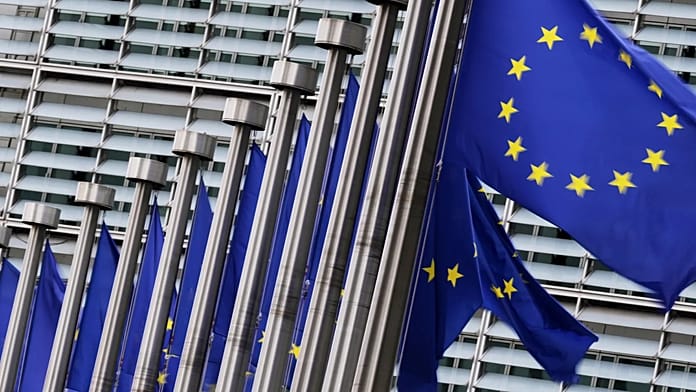State pension alert: Thousands of British retirees in Europe get up to £35,000 a year
Thousands of British retirees living in Europe are receiving state pensions of up to £35,000 a year without paying UK tax, analysis shows.Nearly half a million British pensioners currently reside in the European Union, with tens of thousands receiving payments that exceed the UK's personal tax allowance.Despite these substantial payments, many expats avoid the "retirement tax" that their UK-based counterparts increasingly face.According to the latest figures from the Department for Work and Pensions, 480,906 recipients of the British state pension were living in the European Union as of August 2024.Of these, approximately 42,000 pensioners receive UK state pensions that exceed the £12,570 personal allowance.This threshold is significant as it represents the point at which UK residents would begin paying income tax on their pension income.Britain's complex state pension system allows some retirees to receive payments three times larger than the "full" amount of £11,976.The six retirees with the largest state pensions living in EU countries received between £680 and £690 a week, or around £35,500 a year.These substantial payments remain tax-free due to "double taxation treaties" in place between Britain and all EU nations.These agreements ensure British nationals living in the EU cannot be taxed twice on their income. Meanwhile, millions of pensioners living in the UK are being pushed into paying income tax on their state pensions.This is because tax thresholds have been frozen since 2021 under the previous Conservative Government and will remain so until 2028.At the same time, the state pension "triple lock" has increased weekly payments, with the new "full" state pension rising by 4.1 per cent to £11,973 a year last month.LATEST DEVELOPMENTS:State pension alert: DWP urged to lower retirement age for 'unemployed' Britons after benefit cutsState pension age increase set to reward Rachel Reeves's Treasury with £10.4bn savings boonPensioners urged to get 'mid-retirement MOT' as private savings may not be enoughAround 3.3 million people already receive a state pension above the £12,570 tax-free personal allowance.David Denton, tax expert at Quilter Cheviot, said: "Those receiving the state pension while living abroad with income exceeding the personal allowance may pay a different level of tax compared to those with the same income living in the UK."In some cases, those living abroad may take home more of their income than their UK counterparts."The state pension is currently paid to nearly 13 million retirees across all locations. Around 4.2 million pensioners receive the new state pension, introduced in 2016, while 8.8 million are on the old state pension system.Both pensions can be boosted above the "full" amount through various mechanisms.Those on the old state pension can draw additional money from the State Earnings-Related Pension Scheme (Serps), which can increase payments by up to £11,356 a year.Delaying the start date for drawing a state pension can also raise the amount received.Baroness Altmann, a former pensions minister, pointed to the underlying issue with the current system."The real problem is that the frozen tax threshold is perilously close to the full new state pension," she said."This means that anyone who lives in other countries will be paying a different amount of tax, depending on the income tax rules where they live and some may pay no tax at all."The situation creates a stark contrast between pensioners based on residence rather than contributions.

Thousands of British retirees living in Europe are receiving state pensions of up to £35,000 a year without paying UK tax, analysis shows.
Nearly half a million British pensioners currently reside in the European Union, with tens of thousands receiving payments that exceed the UK's personal tax allowance.
Despite these substantial payments, many expats avoid the "retirement tax" that their UK-based counterparts increasingly face.
According to the latest figures from the Department for Work and Pensions, 480,906 recipients of the British state pension were living in the European Union as of August 2024.
Of these, approximately 42,000 pensioners receive UK state pensions that exceed the £12,570 personal allowance.
This threshold is significant as it represents the point at which UK residents would begin paying income tax on their pension income.
Britain's complex state pension system allows some retirees to receive payments three times larger than the "full" amount of £11,976.

The six retirees with the largest state pensions living in EU countries received between £680 and £690 a week, or around £35,500 a year.
These substantial payments remain tax-free due to "double taxation treaties" in place between Britain and all EU nations.
These agreements ensure British nationals living in the EU cannot be taxed twice on their income. Meanwhile, millions of pensioners living in the UK are being pushed into paying income tax on their state pensions.
This is because tax thresholds have been frozen since 2021 under the previous Conservative Government and will remain so until 2028.
At the same time, the state pension "triple lock" has increased weekly payments, with the new "full" state pension rising by 4.1 per cent to £11,973 a year last month.
LATEST DEVELOPMENTS:
- State pension alert: DWP urged to lower retirement age for 'unemployed' Britons after benefit cuts
- State pension age increase set to reward Rachel Reeves's Treasury with £10.4bn savings boon
- Pensioners urged to get 'mid-retirement MOT' as private savings may not be enough

Around 3.3 million people already receive a state pension above the £12,570 tax-free personal allowance.
David Denton, tax expert at Quilter Cheviot, said: "Those receiving the state pension while living abroad with income exceeding the personal allowance may pay a different level of tax compared to those with the same income living in the UK.
"In some cases, those living abroad may take home more of their income than their UK counterparts."
The state pension is currently paid to nearly 13 million retirees across all locations. Around 4.2 million pensioners receive the new state pension, introduced in 2016, while 8.8 million are on the old state pension system.
Both pensions can be boosted above the "full" amount through various mechanisms.
Those on the old state pension can draw additional money from the State Earnings-Related Pension Scheme (Serps), which can increase payments by up to £11,356 a year.
Delaying the start date for drawing a state pension can also raise the amount received.
Baroness Altmann, a former pensions minister, pointed to the underlying issue with the current system.
"The real problem is that the frozen tax threshold is perilously close to the full new state pension," she said.

"This means that anyone who lives in other countries will be paying a different amount of tax, depending on the income tax rules where they live and some may pay no tax at all."
The situation creates a stark contrast between pensioners based on residence rather than contributions.







































